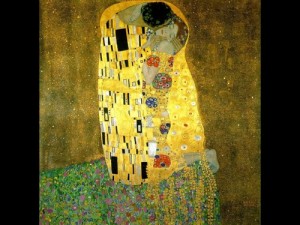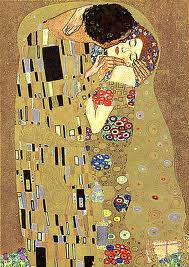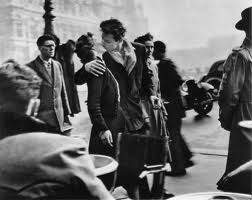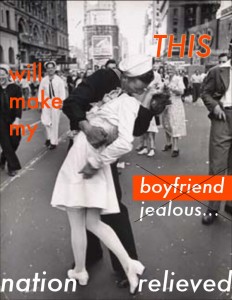Freedom, regardless of gender and sexual orientation, is currently under review. Justices, lawmakers, and advocates are examining the repeal of “Don’t Ask, Don’t Tell” as well as weighing the constitutionality of California’s Proposition 8. While less of a “headline-grabber,” sexual oppression in contexts of both war (e.g., prisoner-directed sexual violence, such as humiliation, rape, and forced marriage, in Iraq and the Congo, to name a few) and “peace” (e.g., civilian-directed sexual violence, such as harassment and rape, in every country on the planet) commands the attention of millions.
This piece attempts to initiate a dialogue on these subjects, using art as a lens to examine power.
Posturing (originally submitted to class wiki on September 16, 2010)
I chose this iconic image because, the more I looked at it, the more suspicious of it I became. While I’d formerly been swept away on a tide of joy and romance — Hooray! The war is over! — I began noticing signs of possible domination and artificiality. First, I looked at the couple’s hands. Check out the nurse’s left, clutching her leg/buttock. What is that about? While her right foot pop seems carefree, her squeeze suggests something else, something other than a passionate desire to hold her smooching sailor. The sailor’s left hand is bizarre also. He isn’t cradling her skull tenderly, he’s got her neck slung over his upper arm and his fist is aloft. Just as she avoided the opportunity to reach out and touch him, so too does he avoid a meaningful embrace. When we add this to the firm grip he’s got on her waist, the kiss seems more and more like a man-handle. He seized an object and had his way with it. But good.
In this sense, it evokes another famous image of a kiss — that of Gustav Klimt. The full portrait shows the woman’s feet dangling over the edge of a cliff.

However, the feet detail is usually cropped out.

Devoid of this context, the image is sweet and sensual, the stuff of postcard purveyors’ and corporate postermakers’ commercial dreams. But the original indicates that our lady is actually in peril, and so the power relationship is called into question. Is she a supplicant to an abusive sexual harasser? Is she a damsel in distress saved by a loving white knight? Then we could start to interrogate her neck position and facial expression. Is she demurely enjoying the kiss or merely tolerating this physical incursion?
With this informing my perspective, I began to question why the sailor would so insistently impose his kiss — and it’s a whopper, check out his mouth, he could swallow that nurse whole! We can see the smiling approval of the dark-suited sailor on the left. And the photographer’s camera could not have been subtle — this is 1945, afterall. The equipment did not blend.
Robert Doisneau’s famous image of a kiss has caught some flak for being posed.

I do not believe that the WWII photographer arranged his subjects as Doisneau had. However, I do wonder if there is an artificiality to the image all the same; I wonder if the sailor posed himself, specifically for a performance of gender. “See how manly I am! Yeah!!!” The buddy sees, and laughs, and approves. The camera sees, and by extension, the nation. Cries America: Hooray for heterosexuality! (We will ignore the sexual assault!)
So again, why so insistent, this machismo? The culture of the military is good enough an answer. But with the possibility of repealing “Don’t Ask, Don’t Tell,” it makes me think about all of the homosexuals who, for years, have served in silence. What if this were a display of pre-emptive or reactive hetero-normative masculinity? That might explain the sailor’s urgency and pandering to voyeurs’ gaze. I purposely made this text ambiguous so that the owner of this interior monologue is unclear: Who has the boyfriend, the man or the woman? The X out of “boyfriend jealous” and line “nation relieved” can be read as a comment on Americans’ unease with homosexuality or our appreciation of this image because it seemed to signify that things were back to normal, that we were happy and released from the yoke of war, and could joyously celebrate with a swak to the kisser.





